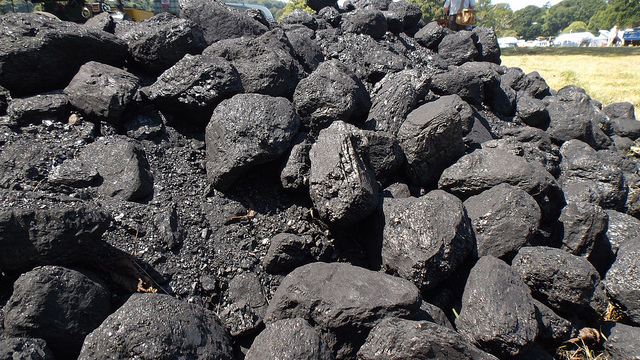Karl Nerenberg is your reporter on the Hill. Please consider supporting his work with a monthly donation Support Karl on Patreon today for as little as $1 per month!
On a day when U.S. President-elect Donald Trump took to YouTube to announce that one of his first acts as President will be to get rid of regulations on coal and shale gas, the Trudeau government announced its plan to almost completely phase out coal-powered electricity.
Federal Environment Minister Catherine McKenna pointed out on Monday that 80 per cent of Canada’s electricity already comes from “non-emitting sources.” She now wants Canada to move to 90 per cent.
Much of that non-emitting electricity is hydropower. But some Canadian provinces also use a fair bit of nuclear, which, while not greenhouse gas producing, is problematic for other reasons.
Take safety, for example.
Just think of Fukushima in Japan, where they had another earthquake on Monday. And then there is nuclear waste, for which there is, as yet, no safe means of long term disposal. Expansion of nuclear power is a prospect Canada will have to deal with in the context of moving away from fossil fuels.
As for coal, McKenna says it still accounts for close to 10 per cent of Canada’s greenhouse gas emissions. Phasing it out, she explains, will be the equivalent of taking 1.3 million cars off the roads.
Not just the climate, also the air we breathe
Importantly, the Minister points to how coal pollution contributes not only to climate change but also to life-threatening health conditions. She quotes a Pembina Institute study that estimates coal was responsible for 20,000 asthma episodes in 2014. The measures the government will now take, McKenna says, will ultimately prevent 1,000 premature deaths a year.
We hear too little talk about the immediate impact of pollution on our bodies — on our lungs, in the case of coal. Those who scoff at science can argue, however awkwardly, that human-caused climate change is still, merely, a theory. They cannot, however, deny the entirely non-theoretical reality of the air we breathe every day.
This writer has suffered from post-pneumonia asthma and knows firsthand the devastating effect of ground level, particulate air pollution.
Carbon in the air is not only bad because of what it will likely do to the climate of the earth over time. It is bad because it damages our capacity to breathe, right now.
There are only four provinces that currently use coal in Canada. One of the them, Alberta, has a plan to phase it out, although it will not necessarily be replacing coal entirely with renewable sources. Natural gas, admittedly much cleaner than coal but still emission producing, will also be in the mix.
The Trudeau government made a special deal that allows Nova Scotia to take longer in the phase-out than the rest of the country, which seems also to mollify its neighbour, another coal burner, New Brunswick.
Premier Brad Wall’s Saskatchewan is the only province that is offside, as it seems to be on everything environmental.
Wall does not openly contest the science of climate change. He does not subscribe to the Trump theory that it is a Chinese plot to weaken western economies. But he was the first Canadian leader to say, following the U.S. election, that we in Canada will have to abandon our climate change plans. Otherwise, the Saskatchewan Premier said, we will put ourselves at a competitive economic disadvantage.
The economic argument is a dangerous one, because environmental measures, like trade deals, do have economic consequences.
If there is no mitigation strategy, reducing greenhouse gas emissions will create winners and losers, and the losers will not be happy. That unhappiness can become a powerful and negative political force.
One of Hillary Clinton’s most tone-deaf moments came when she warned American coal miners to “watch out for their jobs.” Telling working people, who did not choose to, nor have the power to organize the economy the way it is, they will be road kill if the environmental movement gets its way, is not only morally suspect; it is politically toxic.
A sane climate change strategy will have to take into account the legitimate concerns of those who work in polluting industries. They are reasonable and good people, who just want to make a living and support their families.
They are not environmental villains.
Karl Nerenberg is your reporter on the Hill. Please consider supporting his work with a monthly donation Support Karl on Patreon today for as little as $1 per month!




